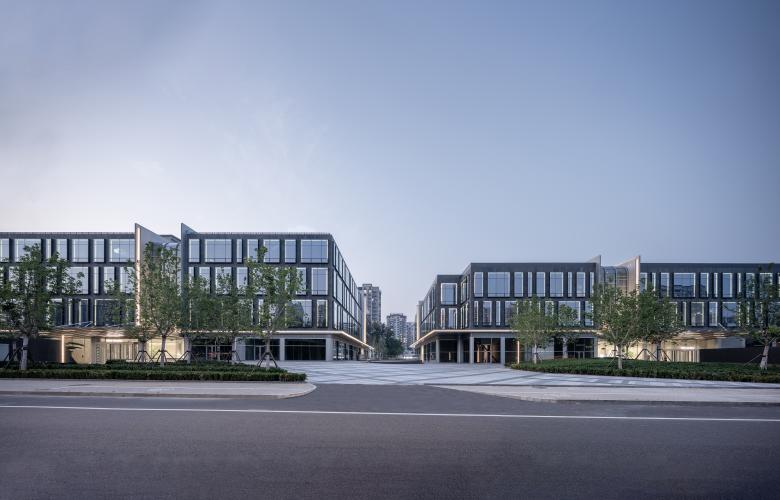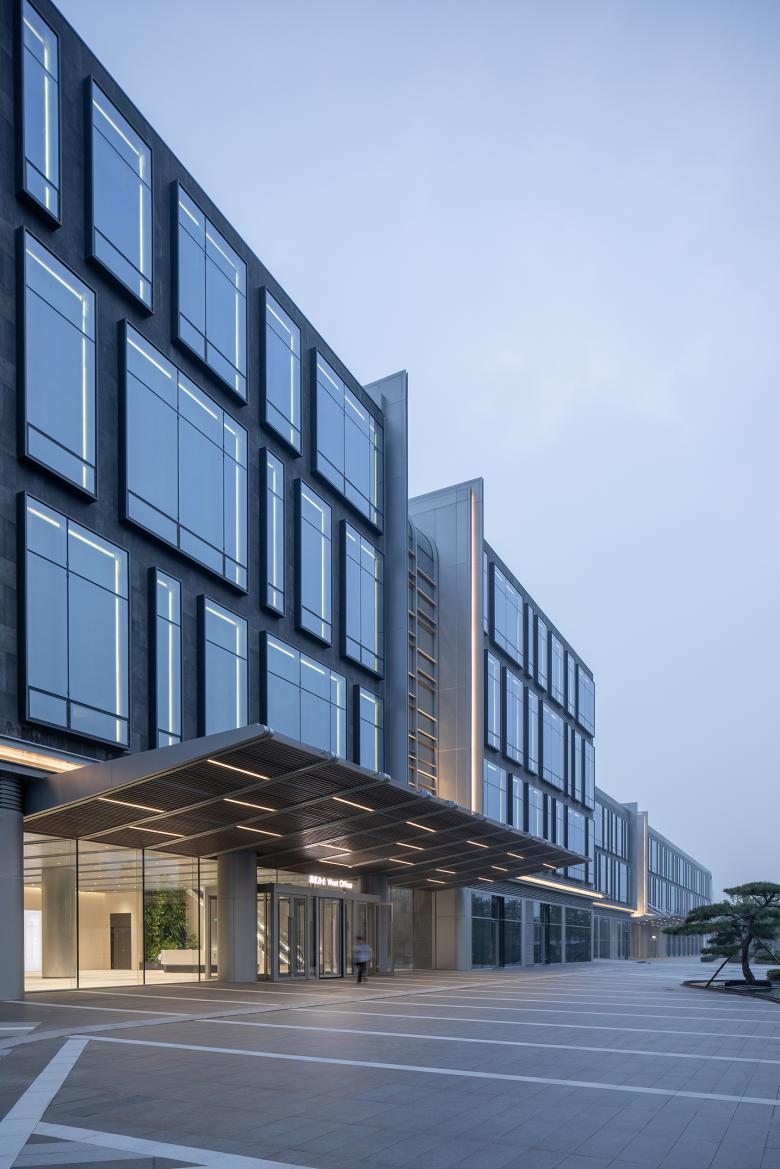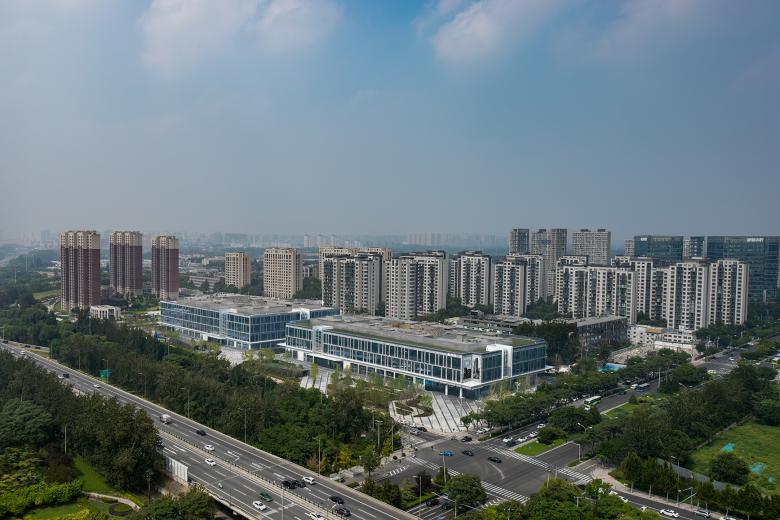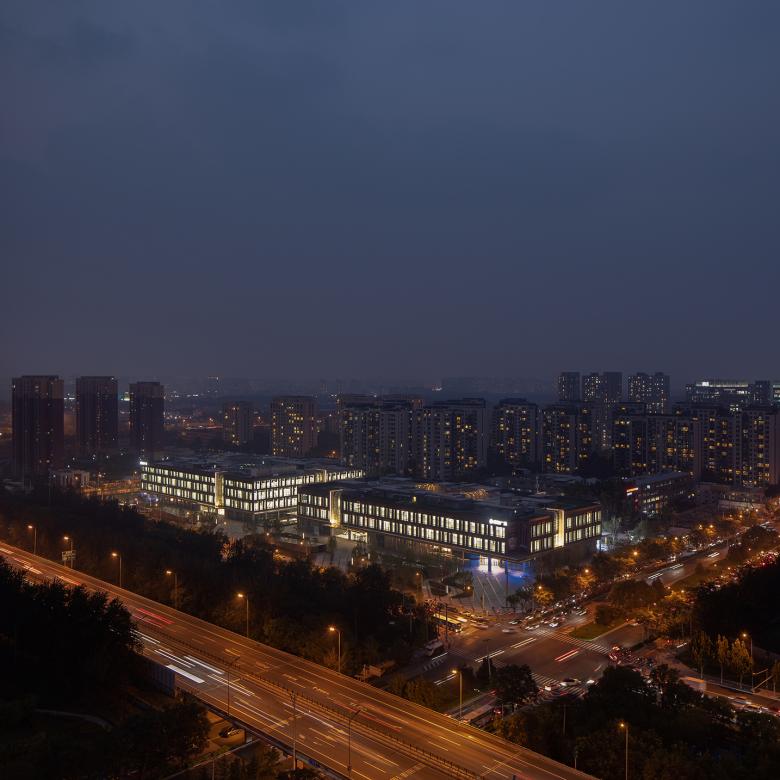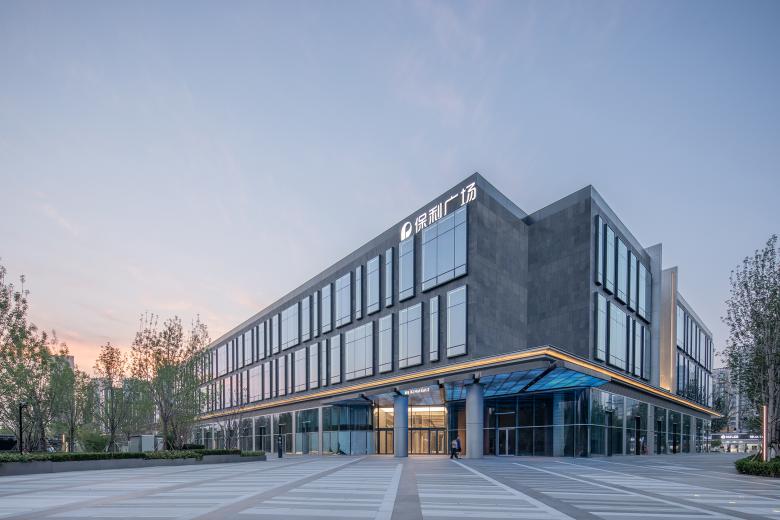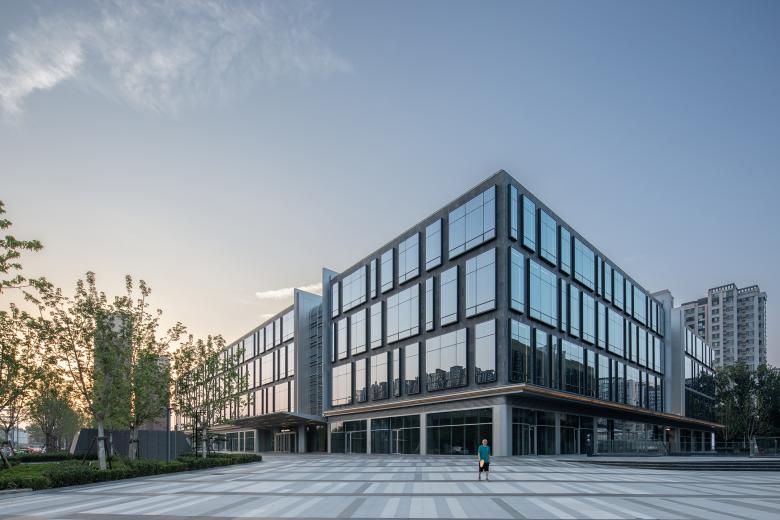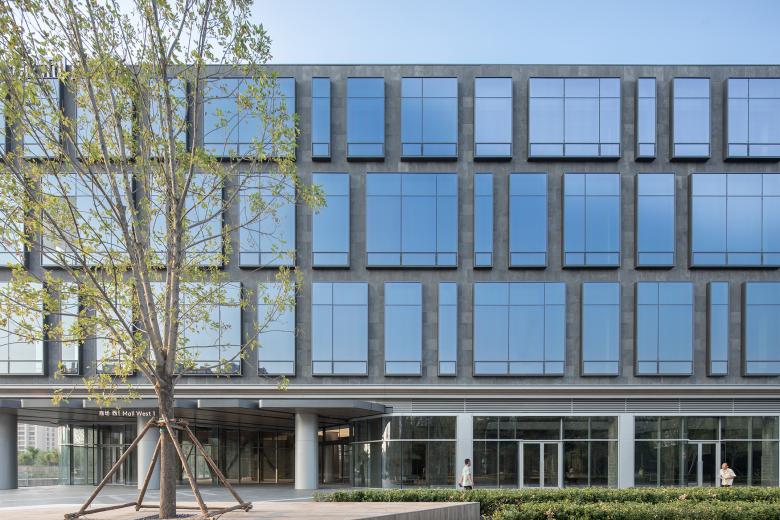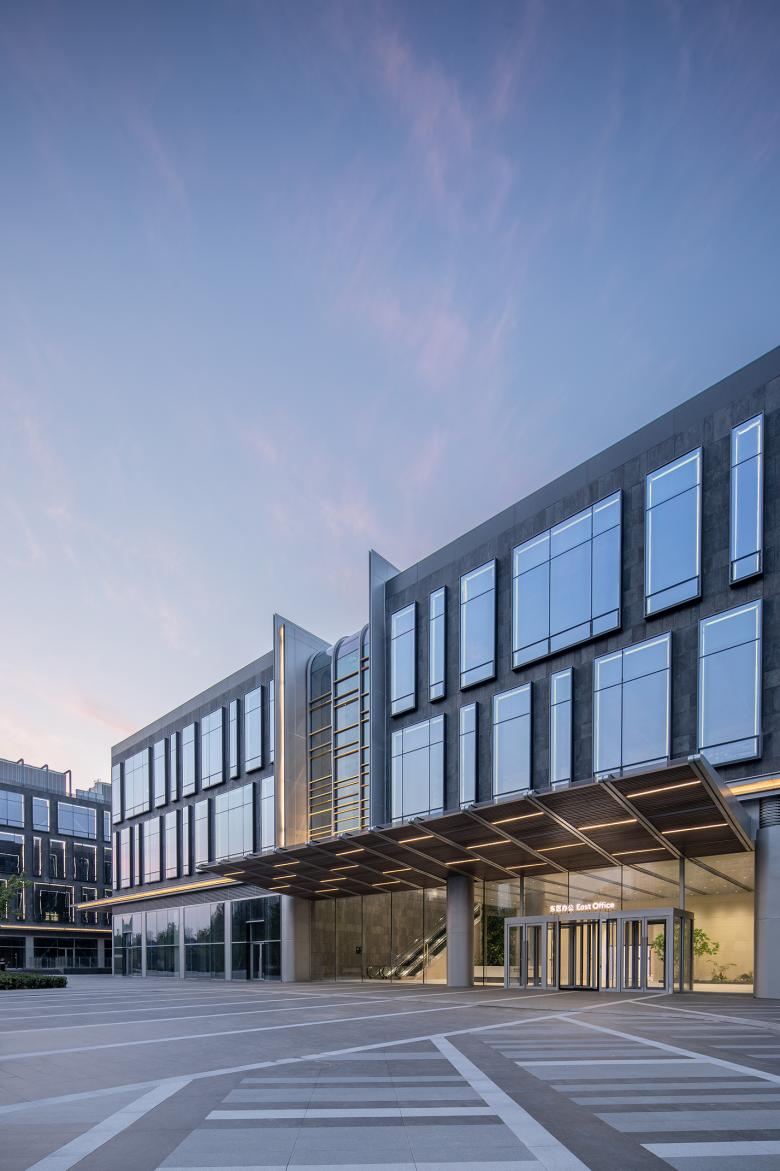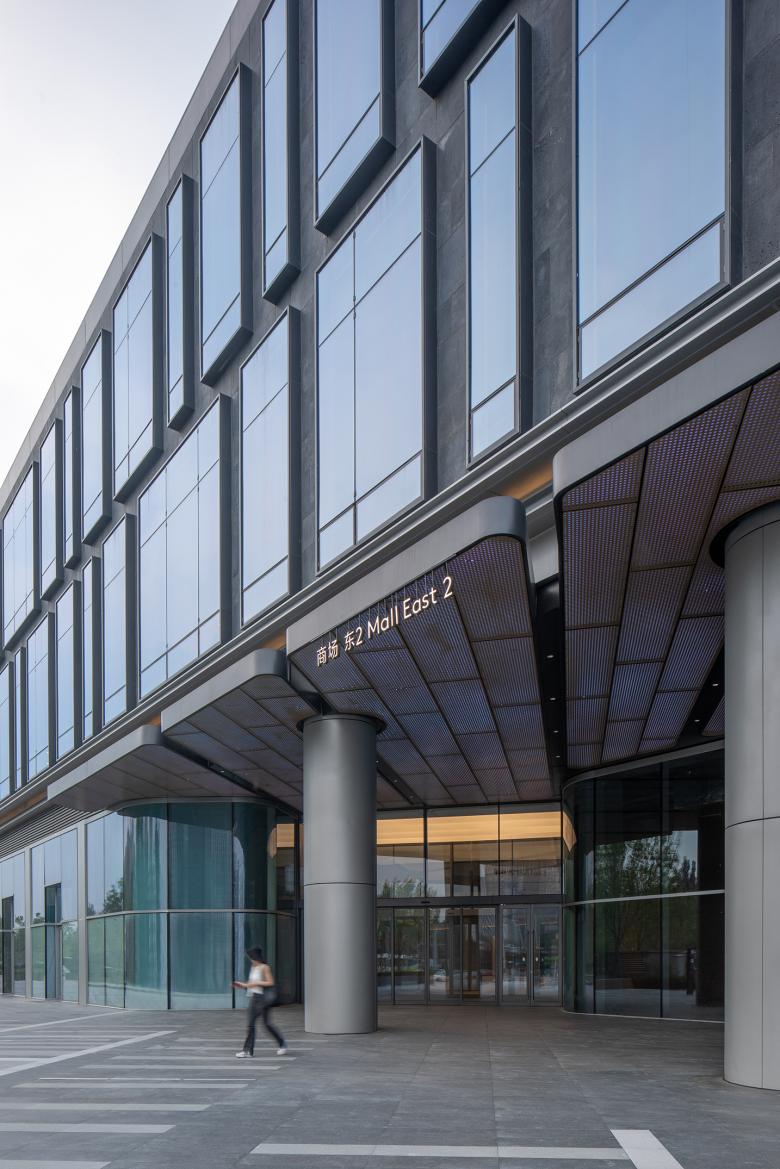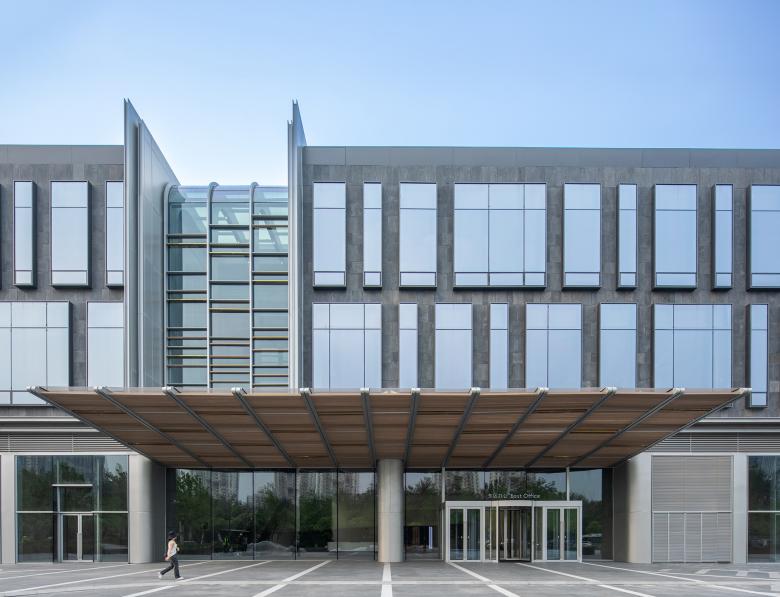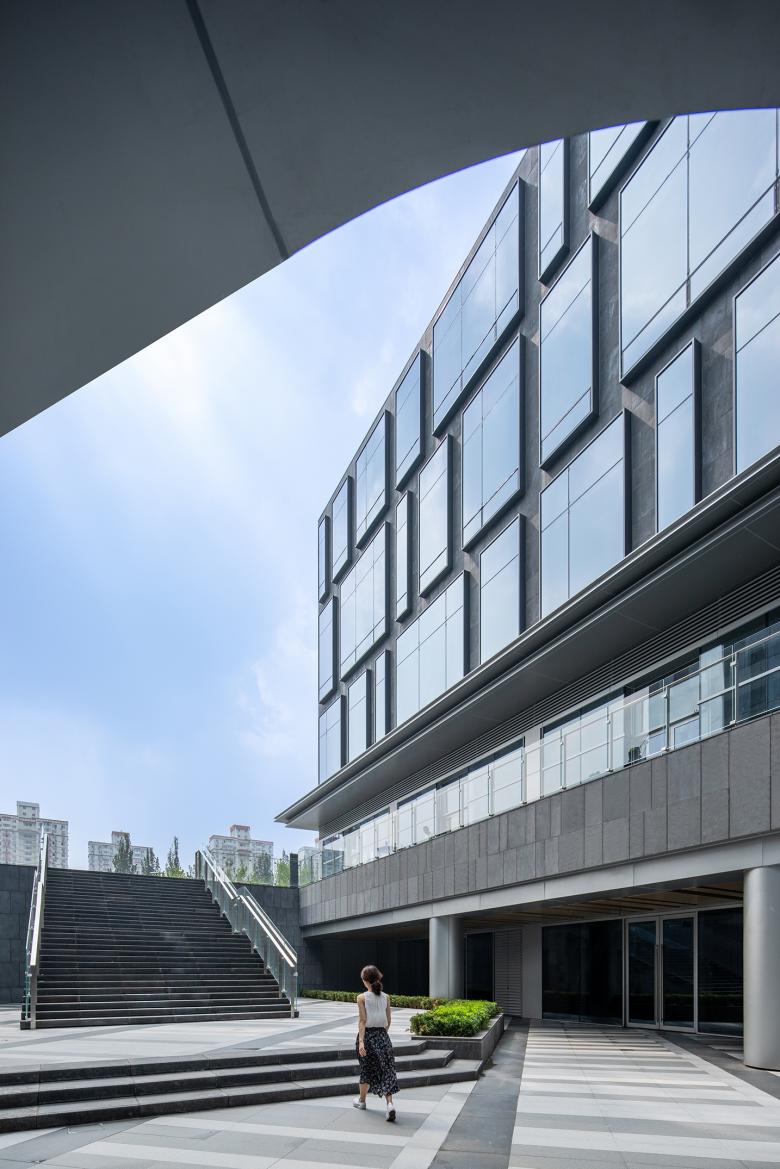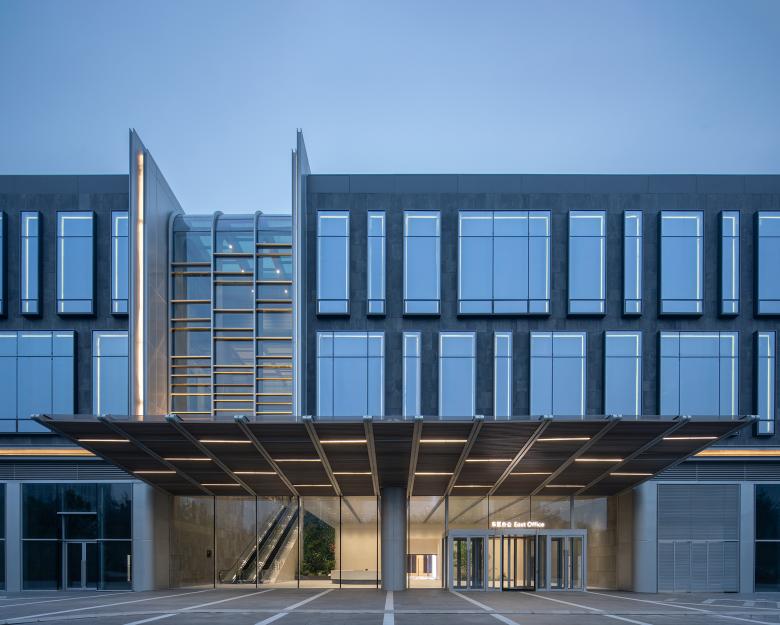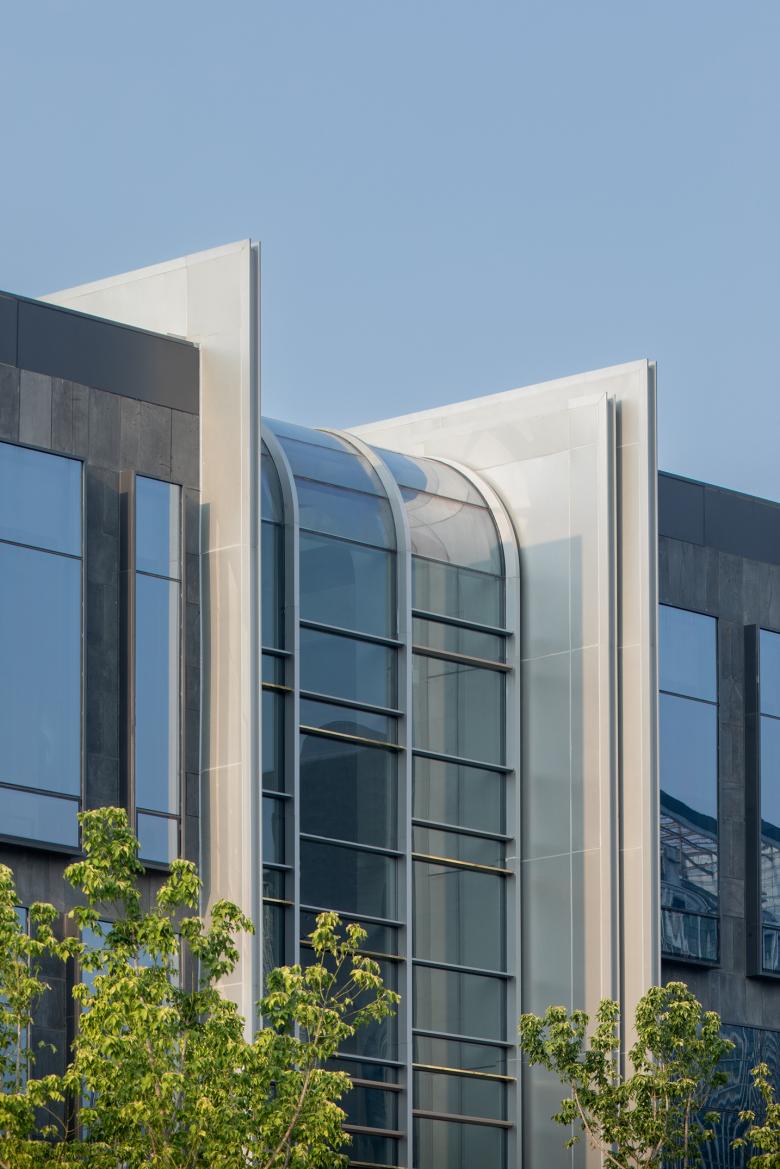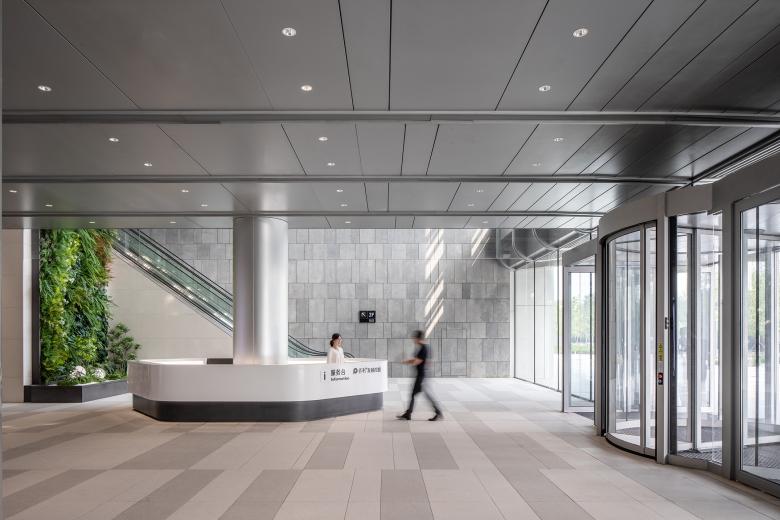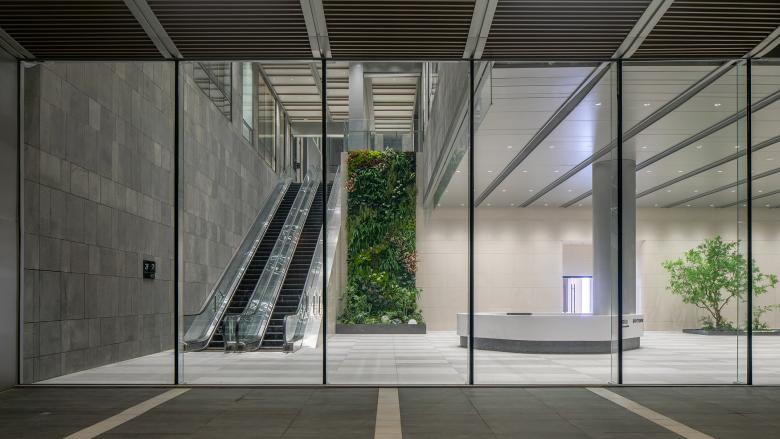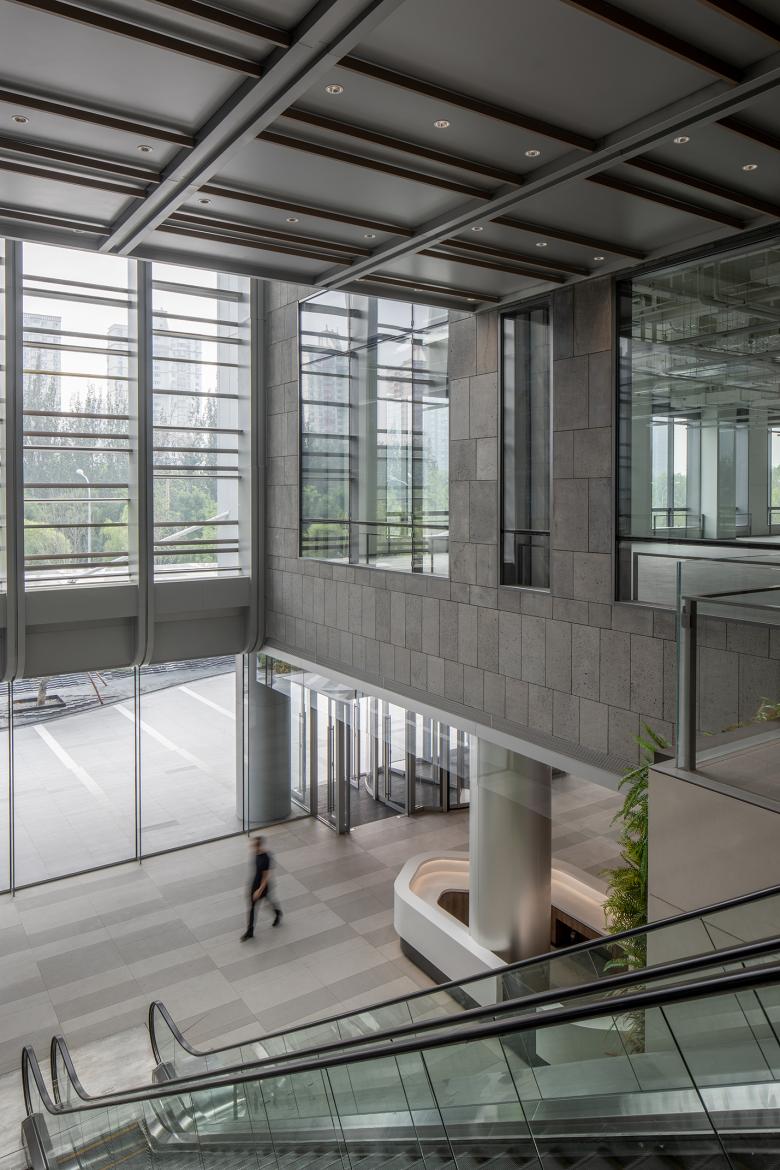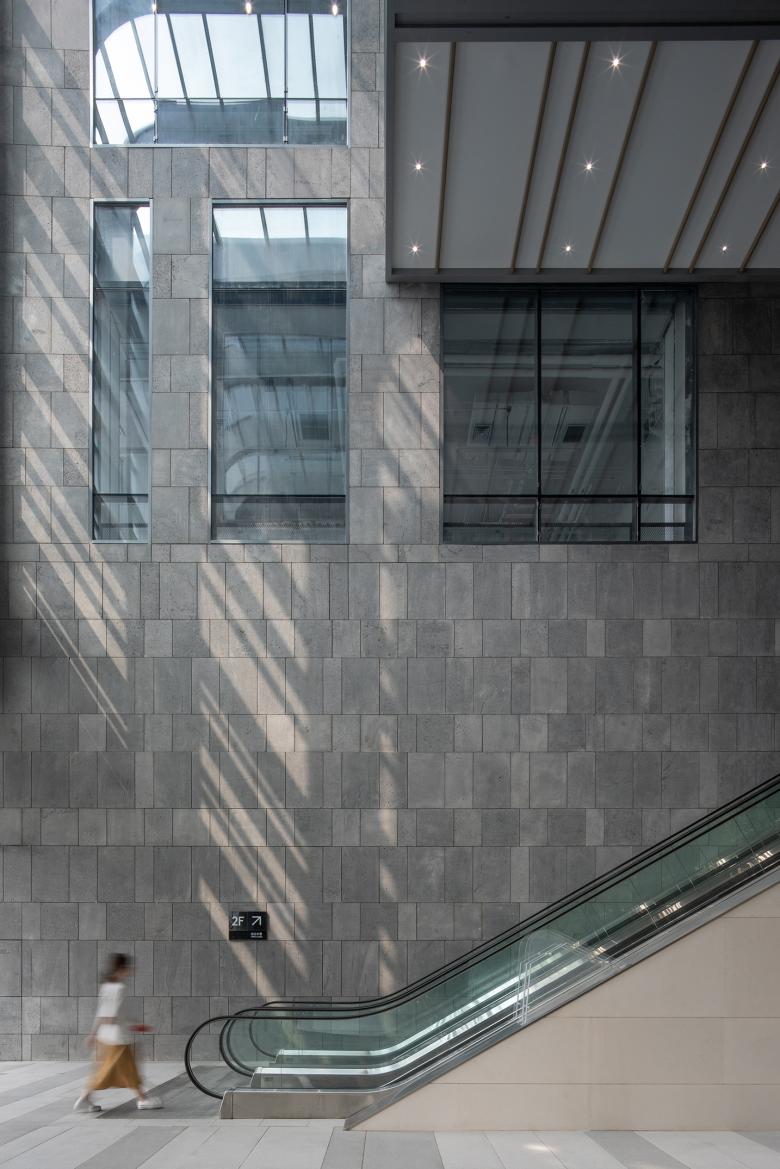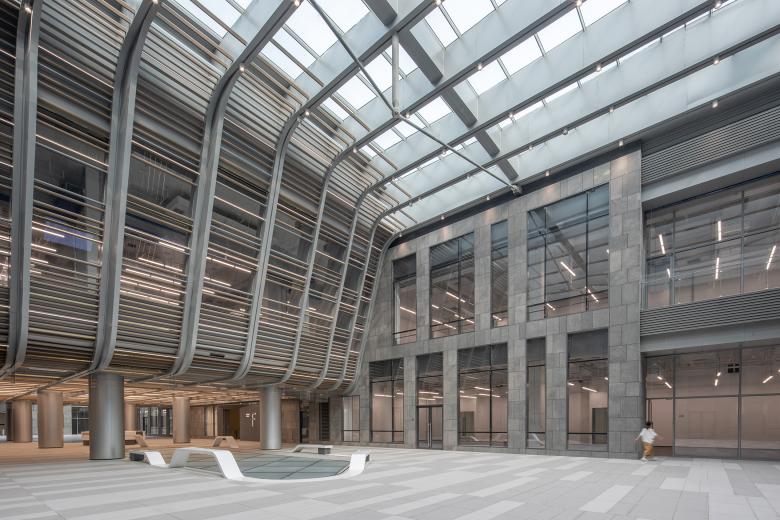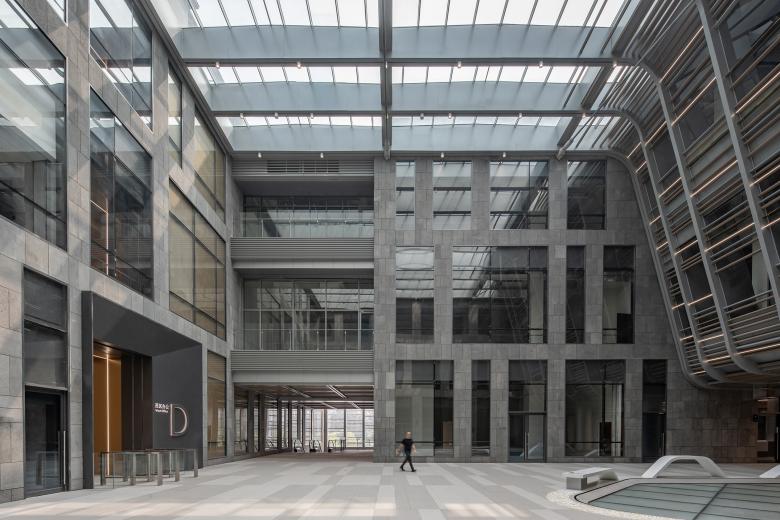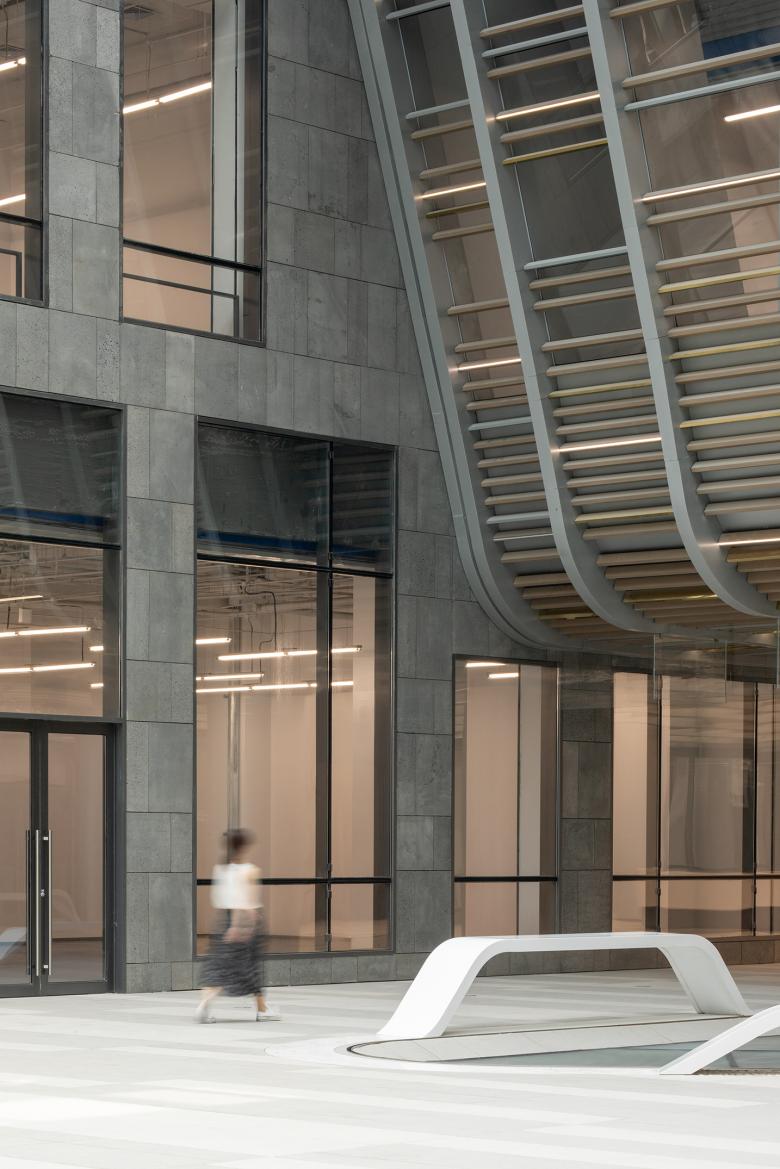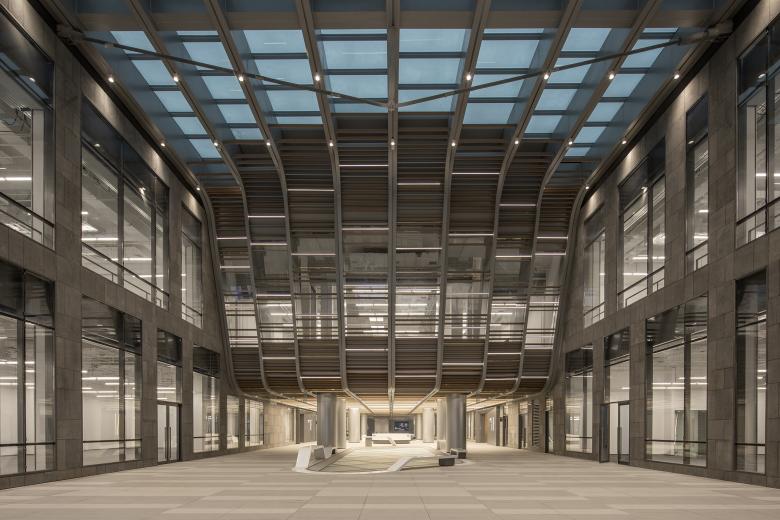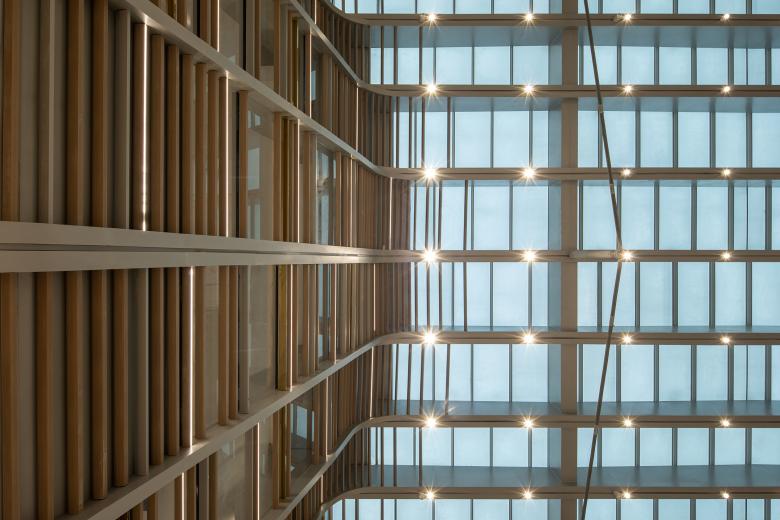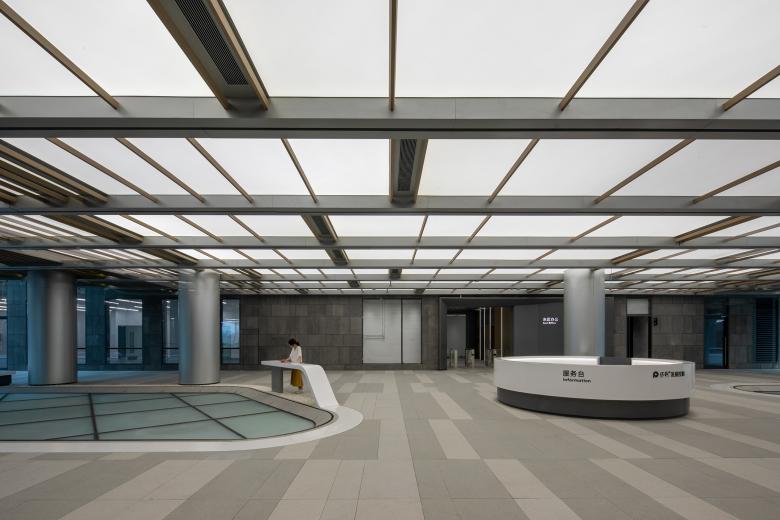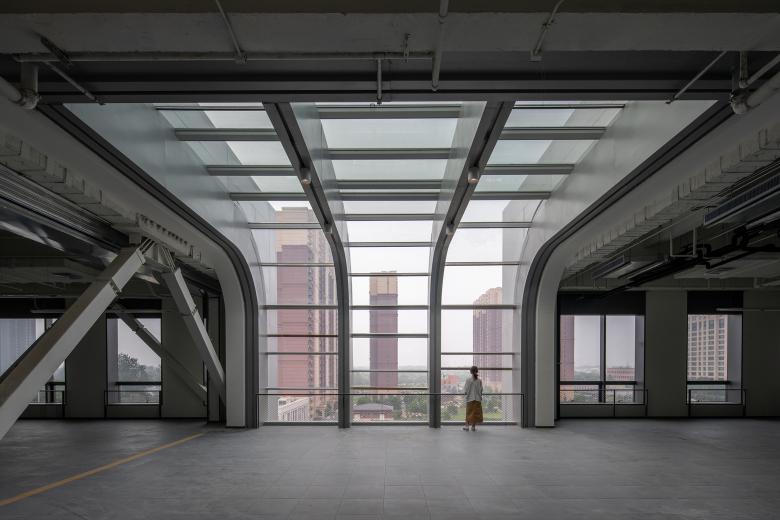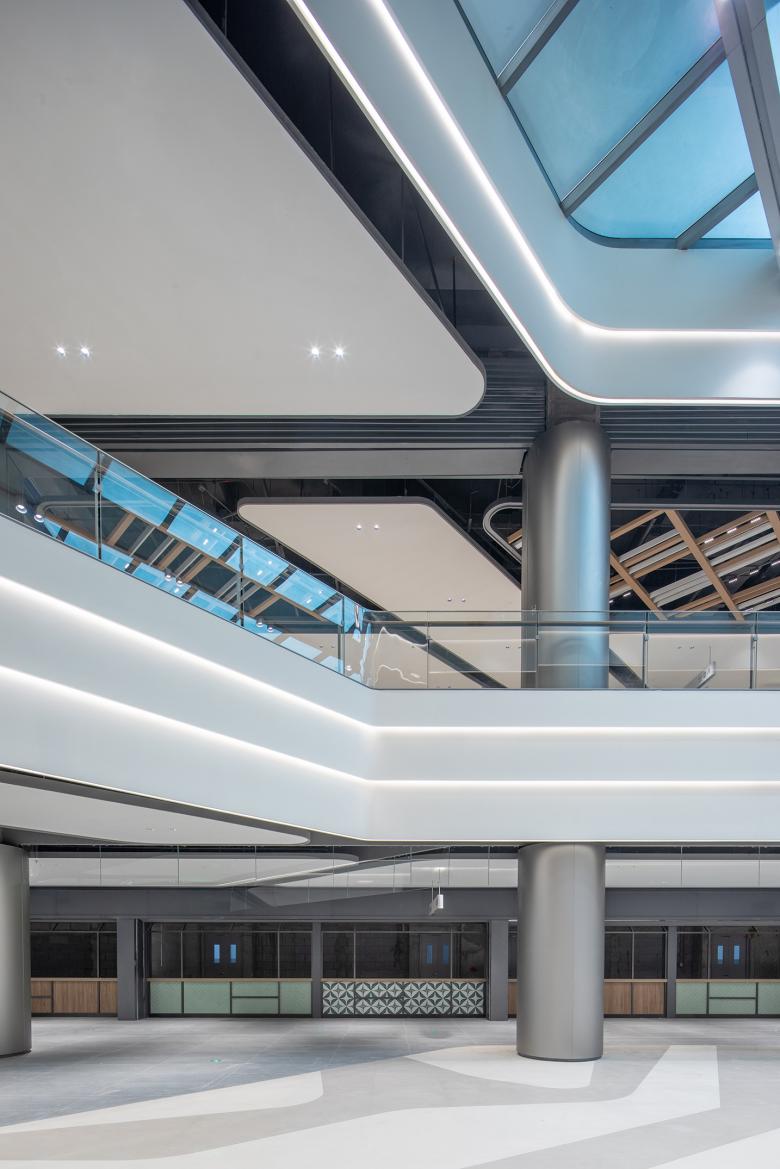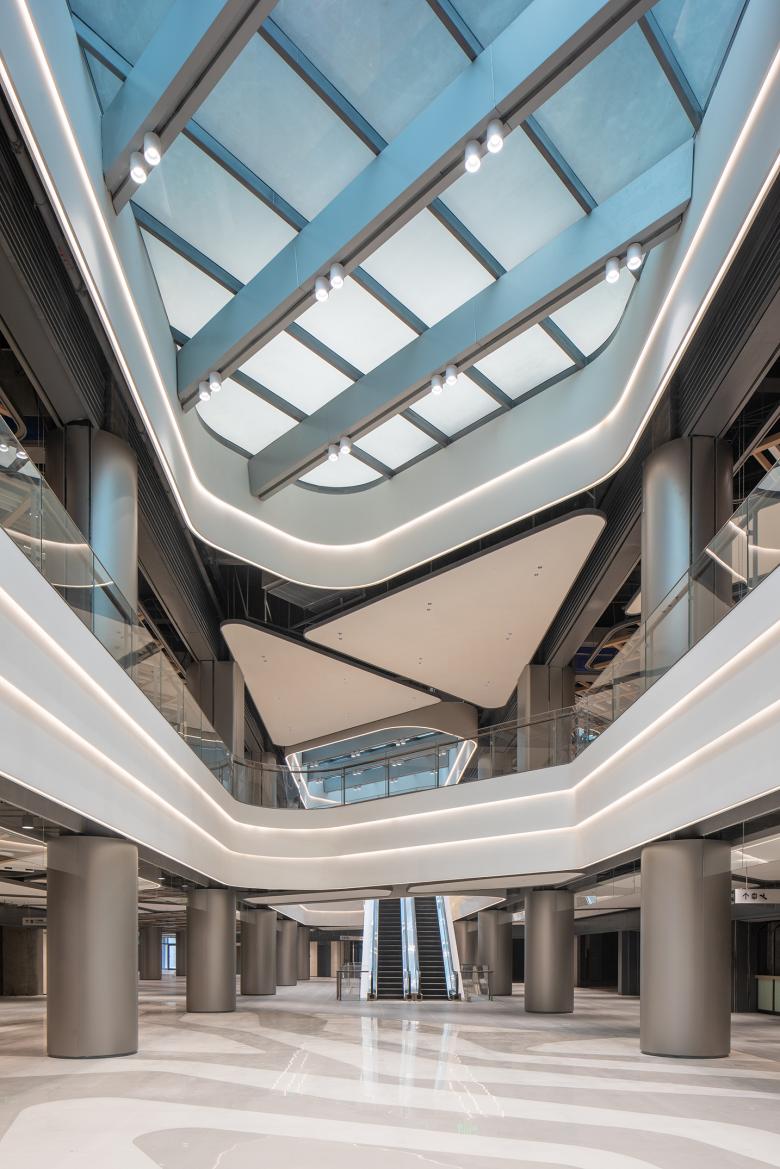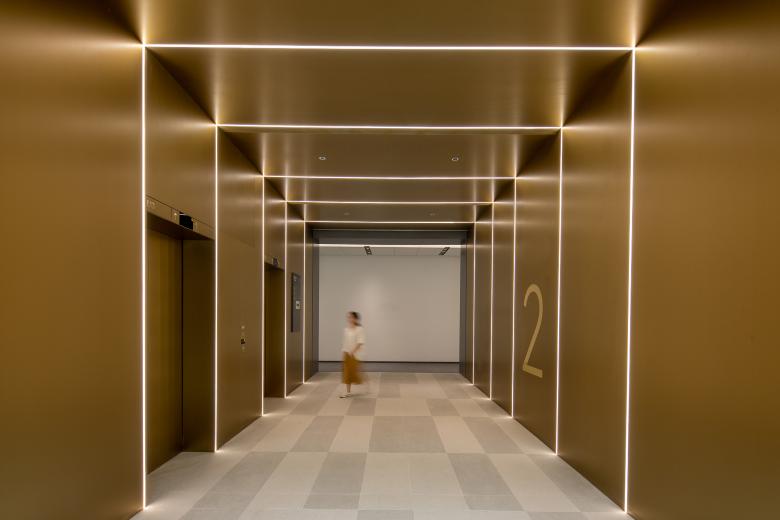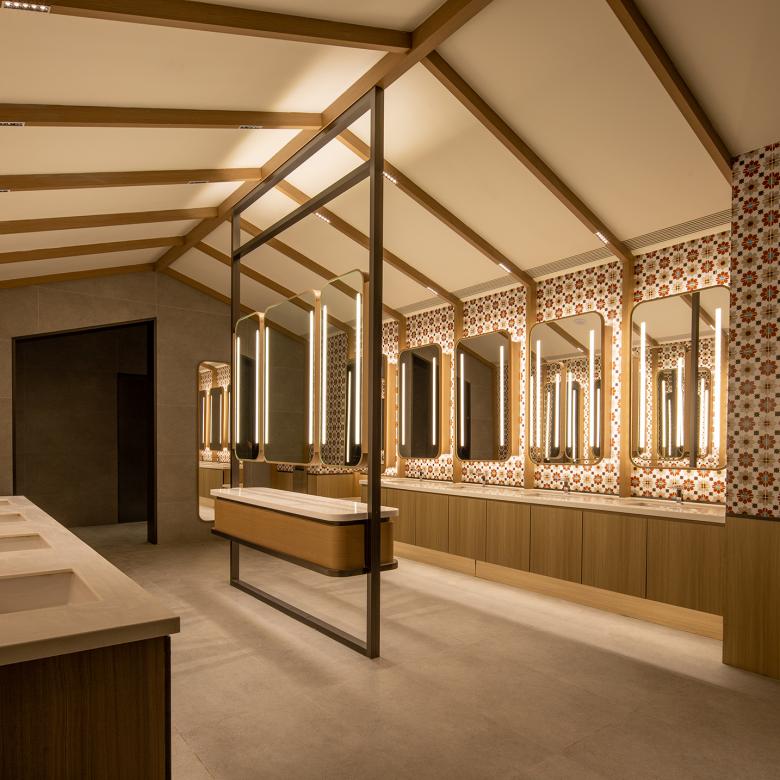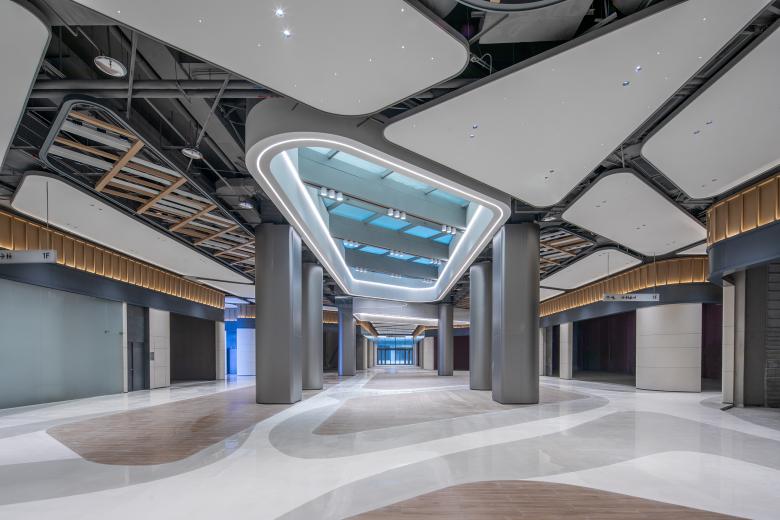Adapting a pair of closed-off, outdated commercial buildings to resonate with a new era, Kokaistudios breathes life and light into a challenging mixed-use Beijing ring road site.
-------------------------------------------
As the city of Beijing has expanded, buildings constructed decades ago are no longer fit for purpose. Such was the case for a pair of commercial buildings set above the North 5th ring road, which stood as introverted boxes that received little natural light and remained closed off from their newly urbanised surroundings.
To properly resonate with the recent wave of residential and office buildings that have risen around the Poly Plaza site, Kokaistudios has worked to adapt and renovate these structures by opening them up, expanding their core functionality, and incorporating entirely new work and public space elements via a series of precise internal carvings.
Comprising two large existing buildings characterised by deep and expansive floor plates, the challenging site required a number of significant alterations to ensure its future as a seamless mixed-use property. To begin, an assessment was carried out to determine the optimal locations and proportions for a sequence of punctual demolitions through the core of each structure that form a series of light wells and bring natural illumination to the wider volumes.
Extracted from the roof downwards, these negative spaces open up the previously enclosed interior whilst simultaneously articulating each building as four smaller clustered structures within two large frames. These clusters were subsequently divided horizontally, introducing an upper layer of office blocks atop the foundation of existing retail space, and instilling a sense of flexible adaptability within each portion that affords a wide variety of tenancy possibilities.
The resulting layout is defined by a pair of light-filled central atriums that support the surrounding retail and office units with vibrant and multi-layered public amenities. Topped by a pair of expansive and striking glass skylights that stretch across each structure before blending into the facade, these elegant additions provide a connective element between the neighbouring clusters, with each of the atriums hosting a dedicated co-working facility.
To distinguish the offices of the upper levels from the commercial podiums below, Kokaistudios implemented two distinct visual styles and material palettes to specify the differing functionalities. The office spaces are typified by sharp geometric volumes and angular fixtures, generating a sleek framework of versatile open-plan communal segments along with private meeting spaces that cater to a multitude of demands and working styles.
The retail elements, meanwhile, have been designed as fluid settings defined by flowing, rounded forms and softened materials. Connecting the levels, an elegant system of curved louvres reaches up from the central courtyard lobbies to gradually fade in density as they approach the skylights above.
To house this revitalised internal identity, the outer facade of each structure has also been modified. The interplay between natural forms and angular elements remains, with the protruding irregular boxes of the upper offices clad in natural stone whilst the lower elevations incorporate a sophisticated combination of aluminium and glass. Serving to create a colour coding system that represents the multi-functionality within, this new exterior with its emphasised passages and openings also works to connect these structures to the neighbouring residential and office complexes.
Likewise, the landscaped areas surrounding Poly Plaza now feature a punctuation of public squares and green communal spaces intended for both casual recreational purposes and as places to host pop-up events and arts initiatives. Through a mixture of hardscape and softscape sections, these pedestrianised components form a social heart for users to linger.
Featuring F&B terraces, a sunken garden, a promenade cut through the central axis between the structures, and rooftop areas such as a basketball court and walking circuit accessible from the offices, the introduction of these green elements complements the abundance of natural light that now spills into each building with organic detailing, symbolising the new lease of life that Kokaistudios have brought to the site.
Where the majority of Beijing’s recent office stock has looked to vertical architectural solutions, Kokaistudios’ renovation of Poly Plaza instead opts for a more organic and humane complex of integrated horizontal modules. Seeking to bring the outside in, both in terms of the user demographic and the surrounding environment, the use of intelligent internal carvings that maximise light whilst minimising waste sees negative space produce positive, organic results, ensuring that the project suitably resonates with the surrounding area whilst ushering in a new chapter of both form and functionality.
Project Information
Project name: Beijing Poly Plaza
Location: Beijing, China
GFA: 119,924 sqm
Site area: 21,775 sqm
Date of completion: August 2023
Client: Poly (Beijing) Real Estate Development Co., Ltd.
Service scope: Architecture Renovation + Interior Design
Chief Architects: Andrea Destefanis, Filippo Gabbiani
Architecture Design Director: Pietro Peyron
Architecture Design Team: Chang Liu, Jingning Ji, Min Cheng, Shuxian Peng, Fei Zheng, Andrea Antonucci, Tian Lu, Wenye Zhu, Yong Zheng, Lang Wang, Pedro Miguel, Ian Hsu
Interior Design Director: Rake Wang
Interior Design Team: Suzy Zhang, Chang Qing, Alex Jiang, Federico Nie, Ellen Cui, Alba Wang
Photography: RAWVISION studio
Text: Kristofer Thomas
Media Contact: Jacqueline Chiang
Email: Jacqueline@kokaistudios.com
